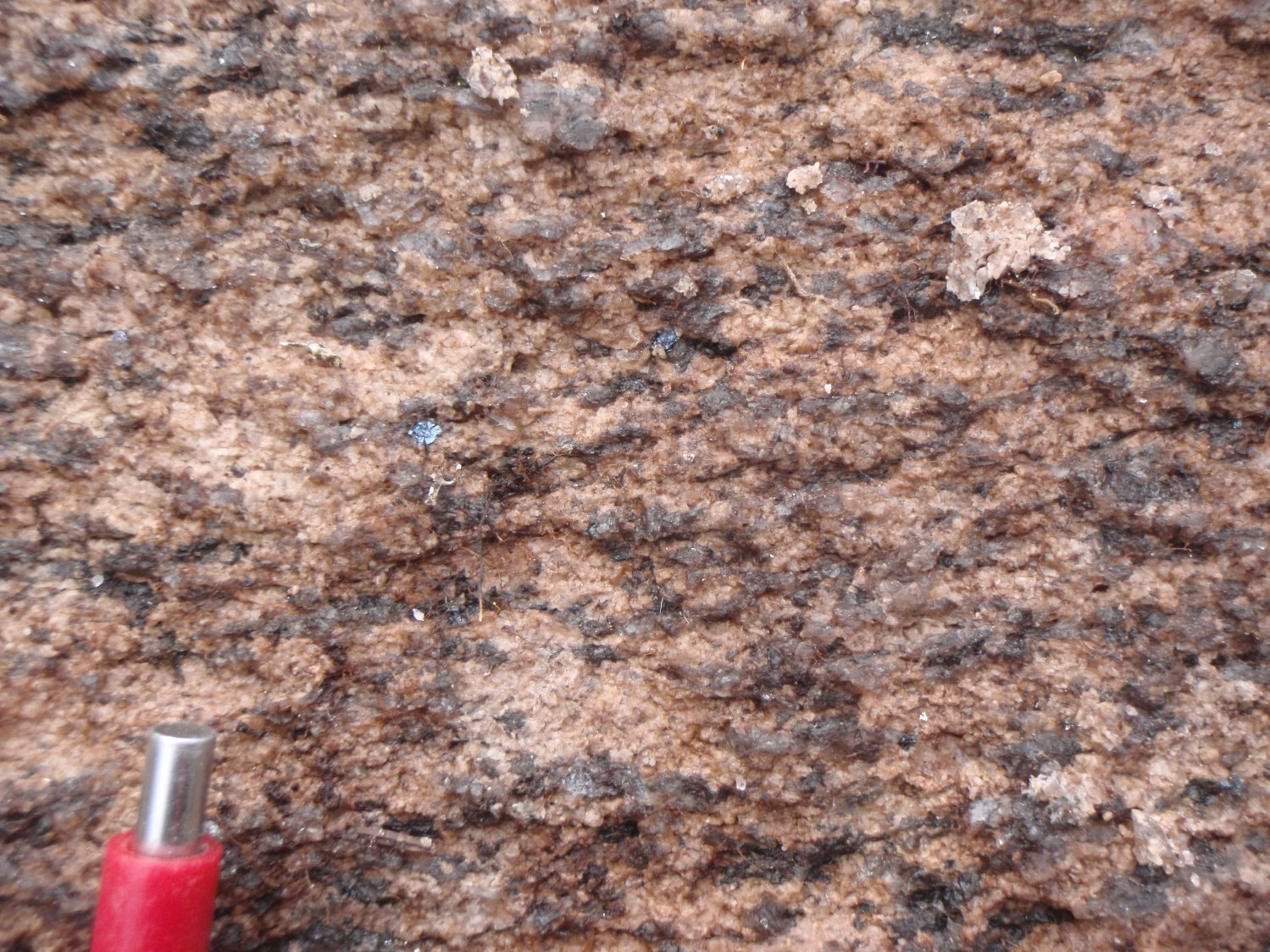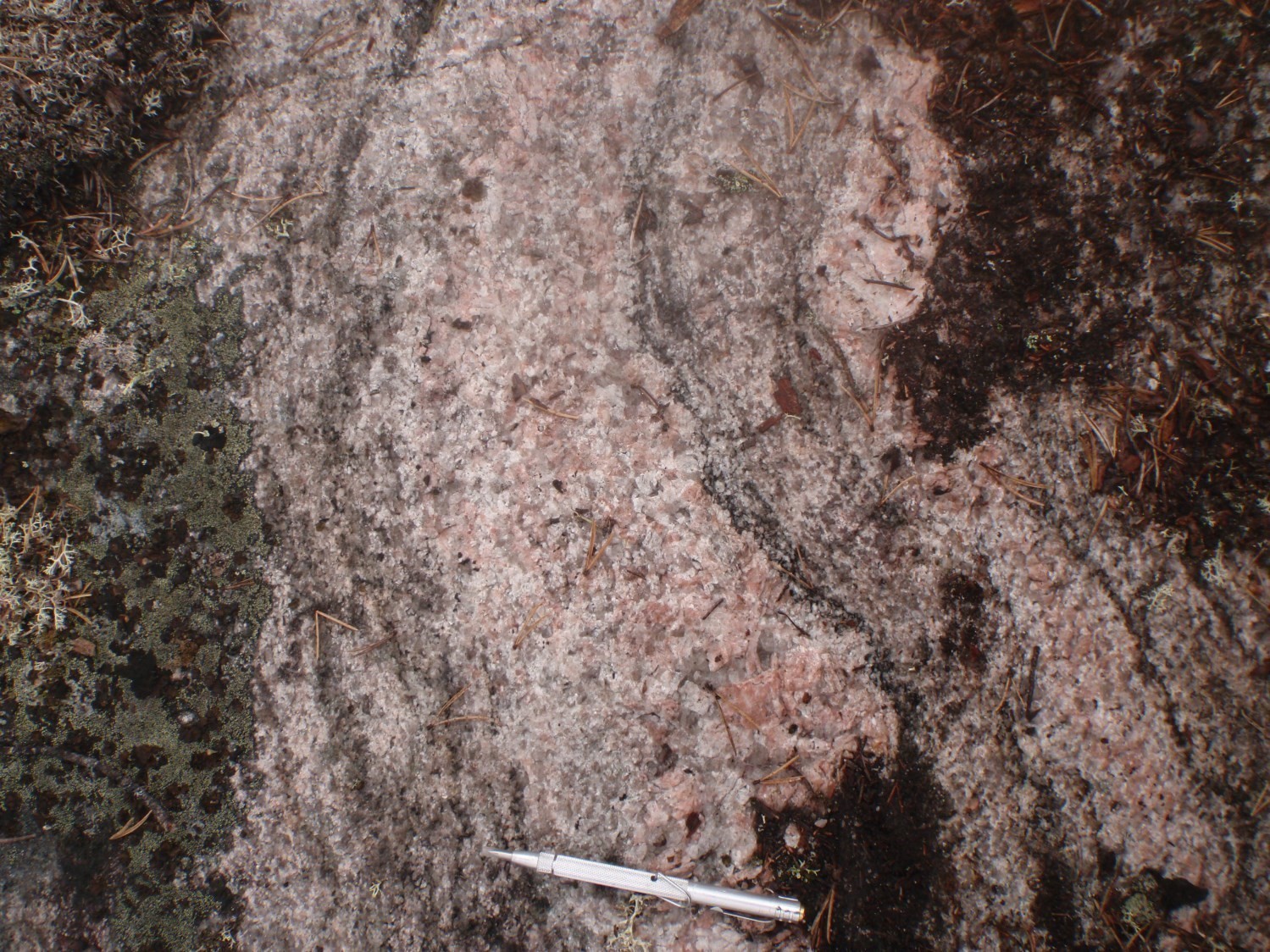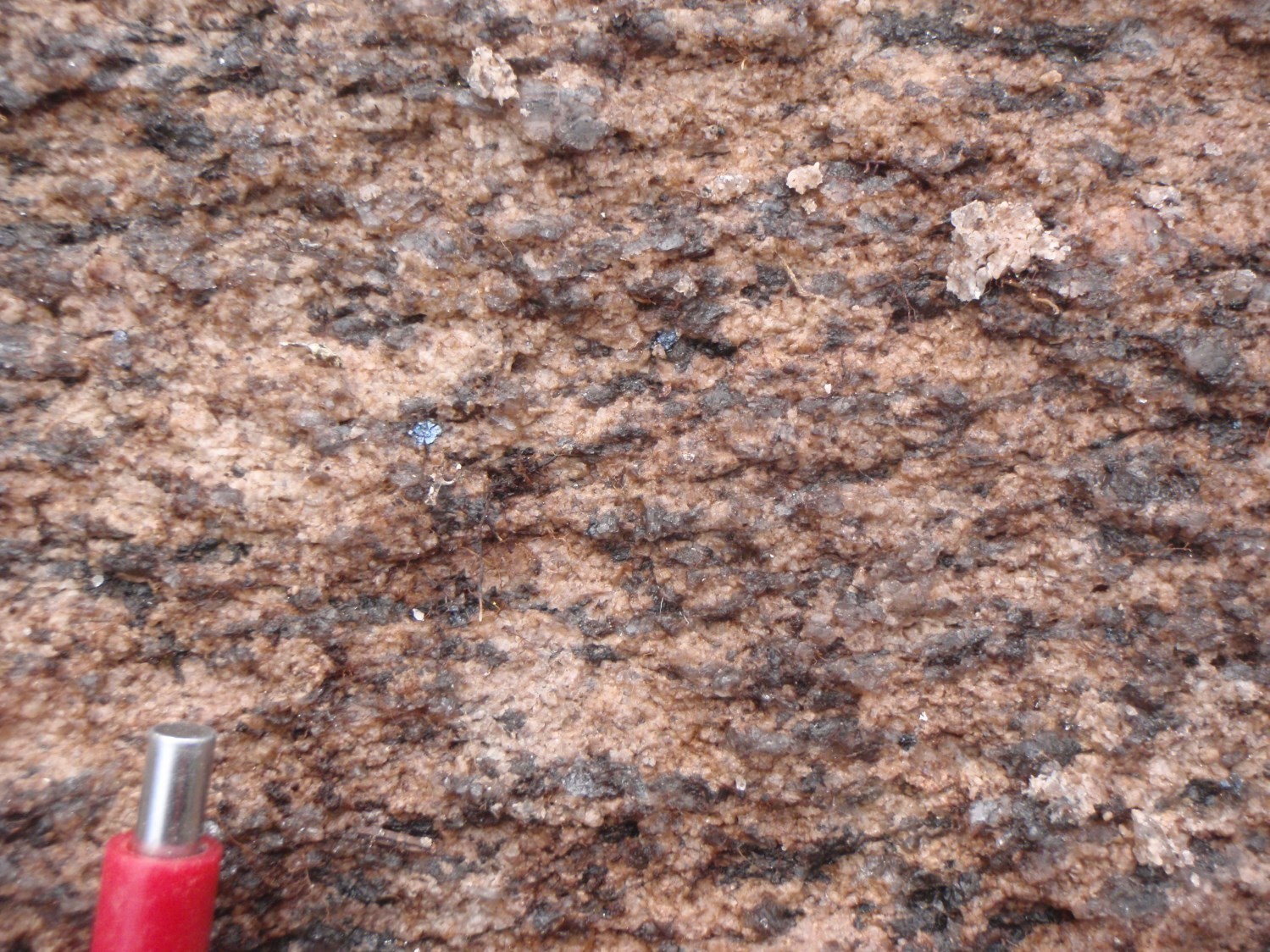
Last modified: 14 June 2019
Translation of original French
| Author: | Bandyayera and Daoudene, 2018 |
| Age: | Neoarchean |
| Reference section: | None |
| Type area: | La Sicotière Lake area (NTS sheet 32N08), west of Long Lake |
| Geological province: | Superior Province |
| Geological subdivision: | Nemiscau Subprovince |
| Lithology: | Foliated biotite granite |
| Type: | Lithodemic |
| Rank: | Suite |
| Status: | Formal |
| Use: | Active |
None
Background
The Canards Suite is a lithodemic unit introduced to describe a series of granitic intrusions (usually foliated) that mainly cut the Théodat Complex and La Sicotière Suite in the Opatica Subprovince (Bandyayera and Caron-Côté, 2019). TheCanards Suite was initially associated with granitic units of the Champion Complex, intrusive in the Rupert Complex (Bandyayera and Daoudene, 2018), but subsequent work by Bandyayera and Caron-Côté (2019) has allowed for distinguishing it from the Champion Complex. Indeed, recent geochemical and petrographic data (Bandyayera and Daoudene, 2018) show that granites of the Champion Complex are generally massive and have a composition similar to that of syncollisional granites (Pearce et al., 1984), while granites of the Canards Suite are typically deformed and associated with a volcanic arc environment (Pearce et al., 1984).
Description
The Canards Suite (nAcnd) includes a series of granitic intrusions located to the northeast of the La Sicotière Lake area (NTS sheet 32N08) and to the southeast of the Champion Lake area (sheet 32N09). It is associated with a positive magnetic anomaly, oriented EW, that continues eastward in the Montagnes (sheet 32O12) and Béchard (sheet 32O05) lakes area.
Unit nAcnd consists mainly of biotite granite, medium to coarse-grained, locally pegmatitic, homogeneous and slightly to moderately magnetic. Granite is light white pink in altered surface, light medium pink in fresh exposure and, in places, reddish due to hematization. The rock is typically foliated and locally gneissic. Intense deformation is defined by stretching and alignment of quartz grains or rods in the preferential direction of foliation. Biotite schlierens have also been reoriented parallel to foliation. The homogeneous rock contains 3-10% biotite (locally up to 15%) and 1-3% magnetite. Magnetite is highly disseminated and locally forms centimetric clusters.
In places, some outcrops contain up to 10% granitic pegmatite clusters. Unit nAcnd also contains metric biotite-hornblende tonalite enclaves, foliated to gneissic, stretched parallel to foliation planes. There are also up to 10% metric enclaves of brownish paragneiss in altered surface and medium grey in fresh exposure.
Geochemically, granitic rocks of unit nAcnd are type I, peraluminous, of calc-alkaline calcic affinity, moderately to strongly enriched in potassium, characterized by negative europium anomalies, and formed in an environment similar to that of volcanic arcs (Pearce et al., 1984).
Thickness and Distribution
The Canards Suite is composed of long, discontinuous hectommetric to kilometric intrusions, mainly located in the Opatica Subprovince, in the vicinity of Long Lake (sheets 32N08, 32N09 and 32O12). Its extension in sheet 32O05 is not yet known. New geophysical (D’Amours, 2011) and geological (Bandyayera and Daoudene, 2018) data show that the largest intrusion, located in the Long Lake area, extends E-W and is at least 25 km long and 7 km wide.
Dating
None.
Stratigraphic Relationship(s)
In the Champion and La Sicotière lakes region, the Canards Suite marks the southern limit of the Lac des Montagnes Group and Voirdye Formation volcano-sedimentary units from which it is separated by the Poste Albanel Shear Zone. It also cuts gneissic tonalite, granodiorite and diorite units of the Théodat Complex and La Sicotière Suite.
Paleontology
Does not apply.
References
| Author(s) | Title | Year of Publication | Hyperlink (EXAMINE or Other) |
|---|---|---|---|
| BANDYAYERA, D. – CARON-COTE, E. | Géologie de la région du lac des Montagnes, sous-provinces de La Grande, de Nemiscau et d’Opatica, Eeyou Istchee Baie-James, Québec, Canada. Ministère de l’Énergie et des Ressources naturelles, Québec; BG 2019-03. | 2019 | BG 2019-03 |
| BANDYAYERA, D. – DAOUDENE, Y. | Géologie de la région du lac Champion, sous-provinces de La Grande et de Nemiscau, à l’est de Waskaganish, Municipalité Eeyou Istchee Baie-James, Québec, Canada. Ministère de l’Énergie et des Ressources naturelles, Québec; BG 2018-06. | 2018 | BG 2018-06 |
| D’AMOURS, I. | Levé magnétique aéroporté de la partie sud-est de la Sous-province de Nemiscau et de la partie nord de la Sous-province d’Opatica, Baie-James, Québec. Ministère des Ressources naturelles et de la Faune, Québec; DP 2011-02, 8 pages, 92 plans. | 2011 | DP 2011-02 |
| PEARCE, T.H. – HARRIS, B.W. – TINDLE, A.G. | Trace element discrimination diagrams for the tectonic interpretation of granitic rocks. Journal of Geology; volume 25, pages 956-983. | 1984 | Source |



